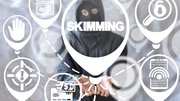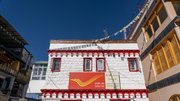News
ATM fees: What do they know and when do they know it?
Link, the UK's national ATM network, is considering a proposal to have its members disclose any ATM fees on the machine itself in addition to on-screen during the transaction.
July 22, 2003
Are British ATM users being given enough of a warning that they may pay convenience fees at some machines? A handful of UK financial institutions -- most notably Nationwide Building Societyand Sainsbury's Bank -- don't think so.
Nationwide last month introduced a proposal to fellow members of Link, the UK's national ATM network, that disclosures be posted on the ATM so that customers would be aware of any fees before inserting their cards.
Frank Creighton, Nationwide's senior press officer, contends that the fee disclosures that are transmitted via the ATM screen in mid-transaction are a case of too little, too late -- even though they give customers a chance to opt out of the transaction if they choose.
Creighton likened it to pulling up to the pump at a gas station, getting out of one's car, unscrewing the gas cap, inserting the nozzle - then discovering how much the gas will cost.
"We're told that consumers are being given 'freedom of choice.' But we find that an interesting choice of words, when you consider the late stage in the transaction during which they find out if any fees will be charged. We don't believe the choice is very clear at all," Creighton said.
Nationwide is concerned by the steep increase in ATMs at which fees are collected, from fewer than 1,000 in 2000 to the current 11,300, Creighton said. That's about 25 percent of the total 43,500 machines in Link, the UK's national ATM network.
Initially, Creighton said, most machines with surcharges were located in remote areas that could not otherwise support an ATM. That is "not necessarily the case" today, he said, with many surcharging machines located "on the High Street, within a short walk of an ATM where no fee is charged."
According to information provided by the Link network, ATM surcharges are assessed during only about 2 percent of the UK's transactions.
Creighton said Nationwide met with resistance when it introduced its disclosure proposal. He believes that many financial institution members of Link "don't want to negate (collecting surcharges) as an option."
Tracy Goodyer, a press officer for Barclays, said that Barclays "placed a great amount of importance on transparency of any charges" and would be "more than happy to consider any proposal once more detail is available."
The proposal has been moved to a Link committee for further discussion, according to information provided by Link.
The proposal "doesn't really concern me one way or another," said Terry Turner, managing director of Hanco ATM Systems, one of the UK's leading independent deployers with 3,500 machines. "On the face, it sounds like a reasonable idea, but it needs to be qualified."
One concern, Turner said, is some that some deployers charge fees to some customers, but not to others. "Even on our machines, some people don't get charged. So what are you going to do? Put a list of exceptions on the machine?"
In the U.S., most ATMs bear stickers warning that the machine's owner "may" charge a convenience fee.
NYCE spokesman Jeremy Zuck said that the network requires that any fees be disclosed in three places: on the outside of the ATM, on-screen during the transaction and on the receipt. Star has a similar policy, said spokeswoman Barbara Span.
Star recently charged its rules so that the fee itself no longer appears on the outside of the machine, just a notice that one exists. "Some financial institutions change fees periodically, and this enables them to do so by pushing out a programming change versus manually changing signs," she said.
Span cited Star's most recent annual consumer survey, which polls more than 11,000 consumers. The survey found that 92 percent of consumers said they were adequately informed of the surcharge. Also, 19 percent noted seeing a decal/sign on the ATM, 53 percent noted seeing a message on the screen prior to beginning the transaction, and 28 percent noted a message during the transaction.
Current Link policy does not prohibit surcharging. However, members who choose to surcharge forgo receiving interchange. Link determines interchange rates. Fees charged to ATM users are set by either the acquirer (surcharge) or the issuer (foreign or "disloyalty" fee).
Most financial institutions in the UK collect neither a surcharge nor a disloyalty fee, following a flap over ATM charges in late 2000. Several British banks proposed dropping the foreign fees they collected when their customers used ATMs owned by another bank and replacing them with a £1 convenience fee.
The idea met with widespread public resistance and a caused a schism within the industry. After months of lobbying by consumer groups, most banks dropped both foreign fees and convenience fees in early 2001. A notable exception is Alliance & Leicester, which collects a surcharge at a number of its non-branch ATMs. As in the United States, surcharges are also levied at non-bank ATMs.
Public outcry has died down somewhat since then, said Hanco's Turner. While several newspapers reported on the disclosure proposal and one, The Sun, encouraged readers to register their names on a petition supporting it, "I think it was on page 26 or something like that. A year ago, it would have been front page news."
Hanco machines generate two million transactions a month, which shows that "a sizable chunk of the population accepts (the fee)," Turner said.
Tim Pile, chief executive of Sainsbury's Bank, said he advocates a "simple, straightforward group practice" concerning disclosure among the UK's ATM deployers.
"The issue is not whether you should charge or not, but whether you should tell the customer if you decide to do so," Pile said. "At the end of the day, it annoys customers if they don't find out until mid-transaction that they are being charged."
 ChatGPT
ChatGPT Grok
Grok Perplexity
Perplexity Claude
Claude












